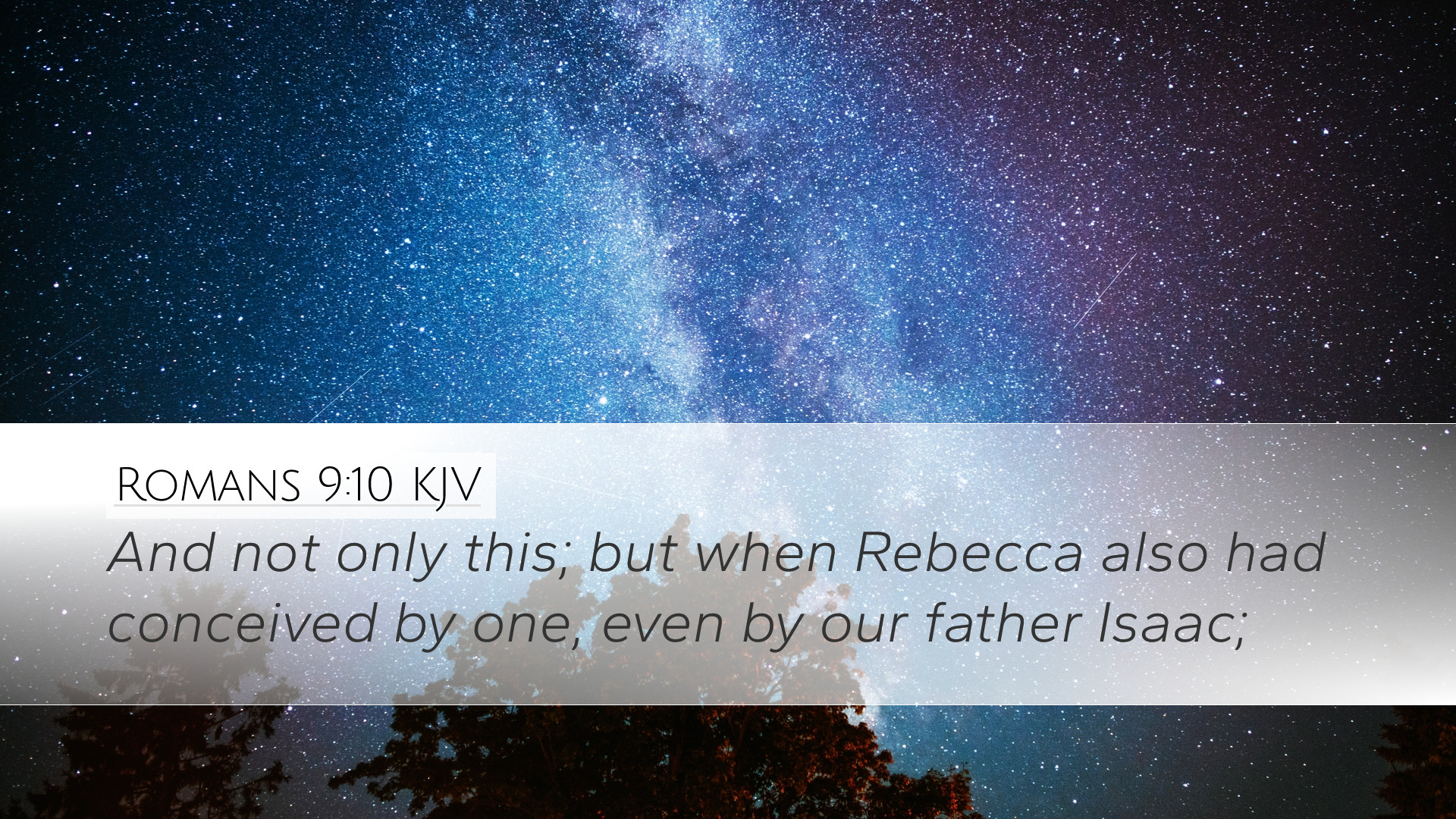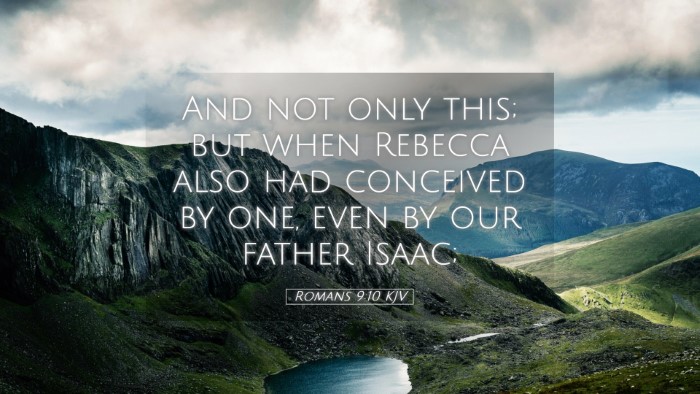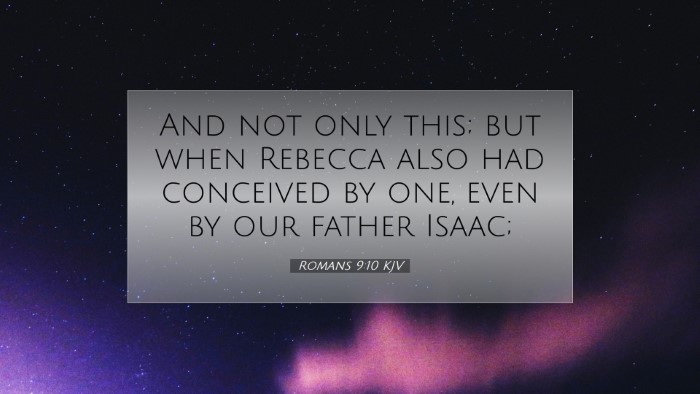Commentary on Romans 9:10
Text of Romans 9:10: "And not only so; but when Rebecca also had conceived by one, even by our father Isaac."
Introduction
This verse is a significant part of the broader theological argument Paul presents in Romans 9, wherein he discusses God's sovereignty and the divine plan for Israel. It underscores the theme of election and God's purposes in choosing individuals based on His will rather than on human merit.
Contextual Analysis
The apostle Paul is writing to the Romans, addressing the complex issue of Israel's rejection of the Gospel and the implications for God's covenant promises. In Romans 9, Paul delves into the nature of God's sovereignty, illustrating it through the example of Isaac and Rebecca.
Insights from Matthew Henry
Matthew Henry emphasizes the providence of God in the birth of Jacob and Esau. He notes that Rebecca's pregnancy with twins signifies a remarkable act of divine design. Henry articulates that this was not merely a natural occurrence; rather, it reflects God's foreknowledge and intention. He highlights that God's purposes are often contrary to human expectations as seen in the selection of Jacob over Esau, which showcases that God operates according to His own decree.
Insights from Albert Barnes
Albert Barnes provides a detailed exposition on the significance of this verse. He notes that Paul refers to the miraculous conception of twins as a demonstration of God’s power. Barnes articulates that Paul utilizes this historical example to reinforce the notion that God's election is based on divine will. He points out that the subsequent biblical narrative about Jacob and Esau serves as an illustration of the principle that "the children of the flesh are not the children of God," thus confronting the assumption of automatic entitlement based on lineage.
Insights from Adam Clarke
Adam Clarke draws attention to the genealogical and theological implications of this passage. He notes that God's selection of Jacob over Esau signals a deeper spiritual truth—that salvation is rooted not in ethnic or familial identity but in divine grace. Clarke elaborates on the ramifications of this election in the context of God's overarching covenant with Israel. He urges readers to understand that God's choice is about fulfilling His purpose and demonstrating His mercy.
Theological Implications
Romans 9:10 compels readers to reflect on several crucial theological themes:
- Sovereignty of God: The verse reflects God's ultimate authority in choosing whom He will bless and use for His purposes. This reinforces the belief that divine election is not contingent upon human actions or decisions.
- Grace versus Works: The narrative implies that God's decisions are rooted in grace rather than merit, challenging the notion that lineage or personal achievement can earn divine favor.
- The Mystery of God's Plan: The selection of Jacob over Esau points to the mystery of God’s sovereign plan, often inscrutable to human understanding. This sets a foundation for Paul's argument about the necessity to trust in God's wisdom and providence.
Application for the Reader
This verse invites pastors, students, and theologians to consider the implications of divine election in their own understanding of faith and community. It challenges them to adopt a posture of humility and dependence on God’s grace, affirming that all believers are recipients of His unmerited favor.
Practical Reflections
Pastors can utilize this commentary to help congregants better understand God's character as depicted in Romans. Students and scholars can explore the richer themes of election and grace that underscore Paul's theological discourse. Furthermore, this verse serves as a reminder that God’s purposes transcend human comprehension and societal norms, inviting a response of faith and trust.
Conclusion
In summary, Romans 9:10 encapsulates key theological insights concerning God's sovereign choice and the nature of His covenant relationship with humanity. Drawing from the works of Matthew Henry, Albert Barnes, and Adam Clarke, we are reminded of the grace that envelops our calling as believers and the importance of recognizing God’s hand in the unfolding story of salvation.


